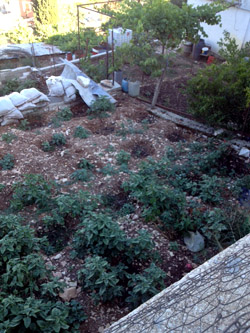Inside Europe’s secret marijuana mountain
 Paraic O'Brien
Foreign Affairs Correspondent
Paraic O'Brien
Foreign Affairs Correspondent
Channel 4 News visits Albania’s onetime wild west, where marijuana producers were making billions of dollars in profit until the law, and the EU, caught up with them.
We had to go through two police checkpoints to get to the quaint mountainous Albanian village of Lazarat.
Albanian special forces personnel in balaclavas asked to see our press cards and we were waved through. It felt like a border crossing, a state within a state. Up until recently that was a exactly what Lazarat was.
Many years ago this remote village, built into the mountains, was forgotten about by the country’s politicians. It was abandoned with no running water, no roads, no law. So villagers decided to take care of themselves and became known as self-sufficient outcasts. In the 1990s a group of locals returned from a stint working with criminal gangs in Italy.

They brought back marijuana seeds and starting growing on their family plots. Over the years this once poor, desolate village became a European marajuana bazaar. Traffickers dealt directly with farmers and bigger farmers became bigger players.
Organised crime moved in and produced so much marijuana they ran out of places to store it. And they got rich, very rich.
“They produced 4.5 billion dollars worth of marijuana per annum, according to an official report,” (that’s the equivalent to a third of Albania’s GDP) said a local journalist we spoke to.
The villagers became so rich, they employed help. An estimated 3,000 labourers from elsewhere tended to the marijuana. Villagers could afford to move out of the old family cottages on the mountain and built enormous new houses closer to the road. They then rented out the cottages to their labourers.
Some of the new houses were adapted, there were networks of storage bunkers under family homes. The village and surrounding farms became the biggest producers of marijuana in Europe. Lazarat had become Albania’s wild west.
The villagers had mortars, machine guns, grenade launchers…. it was a three day war.
But in 2013 a new government in Albania decided to tame marijuana town. A new local chief of police, Haki Kaco, was brought in and on 16 June this year, a small army of police came up over the mountains.
“The villagers had mortars, machine guns, grenade launchers…. it was a three day war,” says Kaco. Villagers, drug dealers and even mercenaries – complete with night vision equipment – fought the law. But the law won.
For a police force in dire need of a reputation reboot, it was an enormous success. No lives were lost. There were over 50 arrests and 500 weapons were seized.
But why did the Albanian government not intervene until now? And why, with rumours that successive administrations were taking a cut, they did intervene at all? A clue: the EU.
Exactly a week after the Battle of Lazarat the EU voted to give Albania “candidate for membership” status.